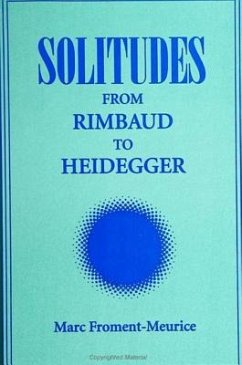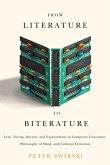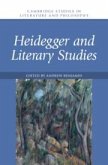The author reads Rimbaud, Mallarme. Holderlin, and Trakl in relation to philosophy, and in particular to Heidegger. Is the age of poets past, or are we just on the verge of its coming in a farewell to poetry? When Rimbaud claims: "One must be absolutely modern!" what does he ask for? Is modernity really already finished, before it has even fully arrived? Is this the paradox of our present time? What if, as Mallarme said, a present does not exist? Is there any place for what Heidegger called "building, dwelling, thinking?" Why did Heidegger himself in the end need an ultimate God, after the failure of his political expectations? To keep questioning is already a way of responding. Perhaps the traditional philosophical gesture is not sufficient. If language, culture, and the history of the West have come to the point of no return as shown by Auschwitz, everything has to be rethought-- without a "turn" or a return.
Bitte wählen Sie Ihr Anliegen aus.
Rechnungen
Retourenschein anfordern
Bestellstatus
Storno




